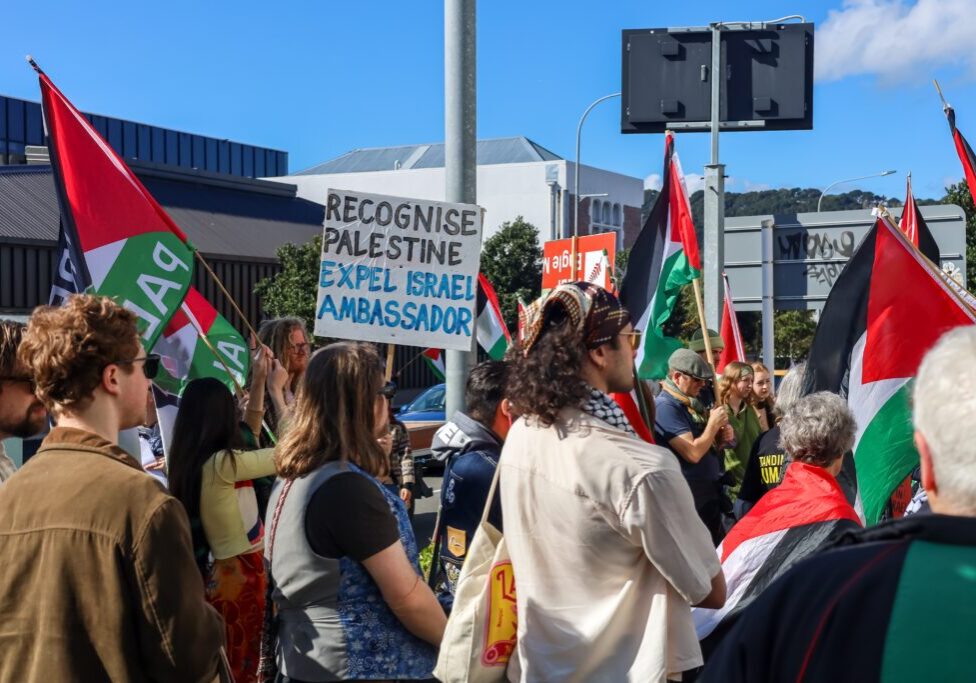Australia/Israel Review
The Myth of a Secular Palestine
May 27, 2009 | Benny Morris
By Benny Morris
The Palestinian national movement started life with a vision and goal of a Palestinian Muslim Arab-majority state in all of Palestine – a one-state “solution” – and continues to espouse and aim to establish such a state down to the present day. Moreover, and as a corollary, al-Husseini, the Palestinian national leader during the 1930s and 1940s; the Palestine Liberation Organisation (PLO), which led the national movement from the 1960s to Yasser Arafat’s death in November 2004; and Hamas today – all sought and seek to vastly reduce the number of Jewish inhabitants in the country, in other words, to ethnically cleanse Palestine. Al-Husseini and the PLO explicitly declared the aim of limiting Palestinian citizenship to those Jews who had lived in Palestine permanently before 1917 (or, in another version, to limit it to those 50,000-odd Jews and their descendants). This goal was spelled out clearly in the Palestinian National Charter and in other documents. Hamas has been publicly more reserved on this issue, but its intentions are clear.
The Palestinian vision was never – as described by various Palestinian spokesmen in the 1960s, 1970s and 1980s to Western journalists – of a “secular, democratic Palestine” (though it certainly sounded more palatable than, say, the “destruction of Israel”, which was the goal it was meant to paper over or camouflage). Indeed, “a secular democratic Palestine” had never been the goal of Fatah or the so-called moderate groups that dominated the PLO between the 1960s and the 2006 elections that brought Hamas to power.
Middle East historian Rashid Khalidi has written that “in 1969 [the PLO] amended [its previous goal and henceforward advocated] the establishment of a secular democratic state in Palestine for Muslims, Christians and Jews, replacing Israel.” And Palestinian-American journalist Ali Abunimah has written, in his recent book, One Country: “The PLO did ultimately adopt [in the late 1960s or 1970s] the goal of a secular, democratic state in all Palestine as its official stance.”
This is hogwash. The Palestine National Council (PNC) never amended the Palestine National Charter to the effect that the goal of the PLO was “a secular democratic state in Palestine.” The words and notion never figured in the charter or in any PNC or PLO Central Committee or Fatah Executive Committee resolutions, at any time. It is a spin invented for gullible Westerners and was never part of Palestinian mainstream ideology. The Palestinian leadership has never, at any time, endorsed a “secular, democratic Palestine.”
The PNC did amend the Charter, in 1968 (not 1969). But the thrust of the emendation was to limit non-Arab citizenship in a future Arab-liberated Palestine to “Jews who had normally resided in Palestine until the beginning of the Zionist invasion” – that is, 1917. True, the amended Charter also guaranteed, in the future State of Palestine, “freedom of worship and of visit” to holy sites to all, “without discrimination of race, colour, language or religion.” And, no doubt, this was music to liberal Western ears. But it had no connection to the reality or history of contemporary Muslim Arab societies. What Muslim Arab society in the modern age has treated Christians, Jews, pagans, Buddhists and Hindus with tolerance and as equals? Why should anyone believe that Palestinian Muslim Arabs would behave any differently?
Western liberals like, or pretend, to view Palestinian Arabs, indeed all Arabs, as Scandinavians, and refuse to recognise that peoples, for good historical, cultural and social reasons, are different and behave differently in similar or identical sets of circumstances.
So where did the slogan of “a secular, democratic Palestine” originate? That goal was first explicitly proposed in 1969 by the small Marxist splinter group, the Democratic Front for the Liberation of Palestine (DFLP). According to Khalidi, “It was [then] discreetly but effectively backed by the leaders of the mainstream, dominant Fatah movement … The democratic secular state model eventually became the official position of the PLO.” As I have said, this is pure invention. The PNC, PLO and Fatah turned down the DFLP proposal, and it was never adopted or enunciated by any important Palestinian leader or body – though the Western media during the 1970s were forever attributing it to the Palestinians. As a result, however, the myth has taken hold that this was the PLO’s official goal through the late 1960s, 1970s and 1980s.
And today, again, and for the same reasons – the phrase retains its good, multicultural, liberal ring – “a secular, democratic Palestine” is bandied about by Palestinian one-state supporters. And a few one-statists, indeed, may sincerely believe in and desire such a denouement. But given the realities of Palestinian politics and behaviour, the phrase objectively serves merely as camouflage for the goal of a Muslim Arab-dominated polity to replace Israel. And, as in the past, the goal of “a secular democratic Palestine” is not the platform or policy of any major Palestinian political institution or party. Indeed, the idea of a “secular democratic Palestine” is as much a non-starter today as it was three decades ago. It is a non-starter primarily because the Palestinian Arabs, like the world’s other Muslim Arab communities, are deeply religious and have no respect for democratic values and no tradition of democratic governance.
And matters have only gotten worse since the 1960s, 1970s and 1980s. For anyone who has missed the significance of Hamas’ electoral victory in 2006 and the violent takeover of the Gaza Strip in 2007, a mere glance at the West Bank and Gaza today (and, indeed, at Israel’s Arab minority villages and towns) reveals a landscape dominated by rapidly multiplying mosque minarets, the air filled with the calls to prayer of the muezzins and alleyways filled with hijab-ed women. Only fools and children were persuaded in 2006-07 that Hamas beat Fatah merely because they had an un-corrupt image or dispensed aid to the poor. The main reasons for the Hamas victory were religious and political: the growing religiosity of the Palestinian masses and their “recognition” that Hamas embodies the “truth” and, with Allah’s help, will lead them to final victory over the infidels, much as Hamas achieved, through armed struggle, the withdrawal of the infidels from the Gaza Strip in 2005.
Excerpted from One State, Two States by Benny Morris. Published by Yale University Press. (c) 2009 by Benny Morris. Reprinted by permission of the author.
Tags: Palestinians






